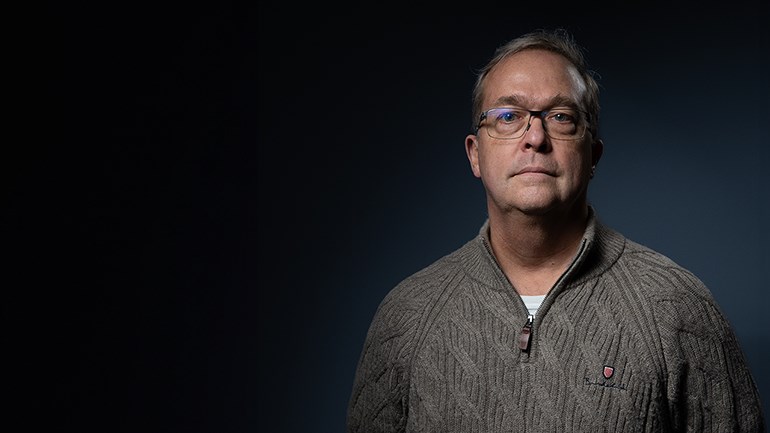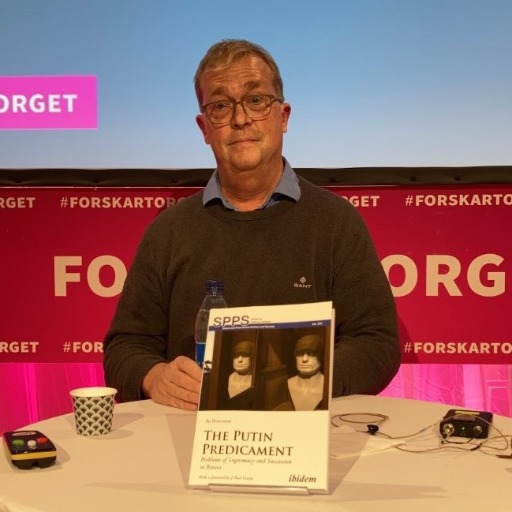National myths strengthen Putin's position

According to Bo Petersson, there are signs that Russia is planning a major offensive ahead of the country’s presidential election in March.
Myths about Russia's predestined great power status are an important element in legitimising the war against Ukraine. If the myths collapse, Putin could have problems defending the invasion to his own population.
This is the view of Bo Petersson, a professor of political science at the Department of Global Political Studies, Malmö University.
The observations are made in the book Exploring Russia's Exceptionalism in International Politics, in which Petersson discusses the importance of the myths for the Russian leadership in their attempts to legitimise the war against Ukraine domestically, especially after the February 2022 escalations.
As the world's support for Ukraine diminishes, it's becoming easier to maintain the myths
Bo Petersson
“The notion of great power has been around since the time of Peter the Great, and the idea of Russia's global mission to oppose the ‘evil and degenerate West’ dates at least since the early 19th century.”
Petersson distinguishes between master myths and complementary myths. While the latter – such as that of Putin as the benevolent ruler/czar or a stable elder statesman – has probably lost some credibility, Petersson argues that the former retains its relevance.
“This is ruthlessly exploited in the propaganda by Putin's spin doctors,” says Petersson, who paints three main myths that serve to legitimise the war: Russia's predetermined great power status, Russia rising like a phoenix from the rubble of troubled times, and Russia as a bulwark against the evil and degenerate West.
Petersson sees the propaganda as a prerequisite for war. If the idea that Russia is unique and destined always to be a great power in opposition to a malevolent outside world had not been so firmly established, the conditions for an aggressive war would have been worse for the regime.
Together with his advisors, Putin has managed to write himself into the myths as the only one who can guarantee Russia's great power status and protect it from harmful outside influences.
Will it be more difficult to maintain the myths?
“If the war is going badly for Russia, yes, but now the trend seems to be that time works in Russia's favour. As the world's support for Ukraine diminishes, it's becoming easier to maintain the myths.”
What will it take for the myths to fall?
“That Russia’s population starts to see through the bluff. But also that the West continues to be united and that the world outside the West, such as China, India, Latin America and Africa, turn their backs on Putin. That no one wants to receive him, for example, given that he has war crimes charges hanging over him. But at the moment, we see no such tendency, although the recently-elected president of Argentina, Javier Milei, seems to want to distance himself from Russia.”
According to Bo Petersson, there are signs that Russia is planning a major offensive ahead of the country’s presidential election in March. All to strengthen Putin's image.
"The election is just a spectacle, but a very important one for Putin and for the myth that he is the venerable and sole leader. He wants to be able to show official statistics on that.”
Text: Magnus Jando & Adrian Grist
Squaring the circle: Legitimizing the Putin regime after February 24, 2022
Bo Petersson discusses the topic in a chapter of the book Exploring Russia's Exceptionalism in International Politics (Routledge 2024, ed. Raymond Taras).
